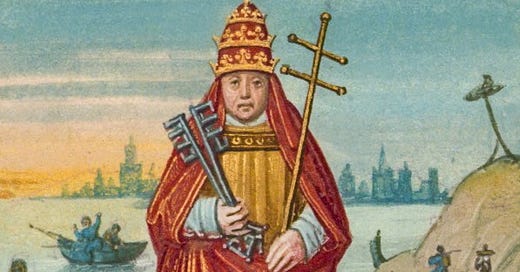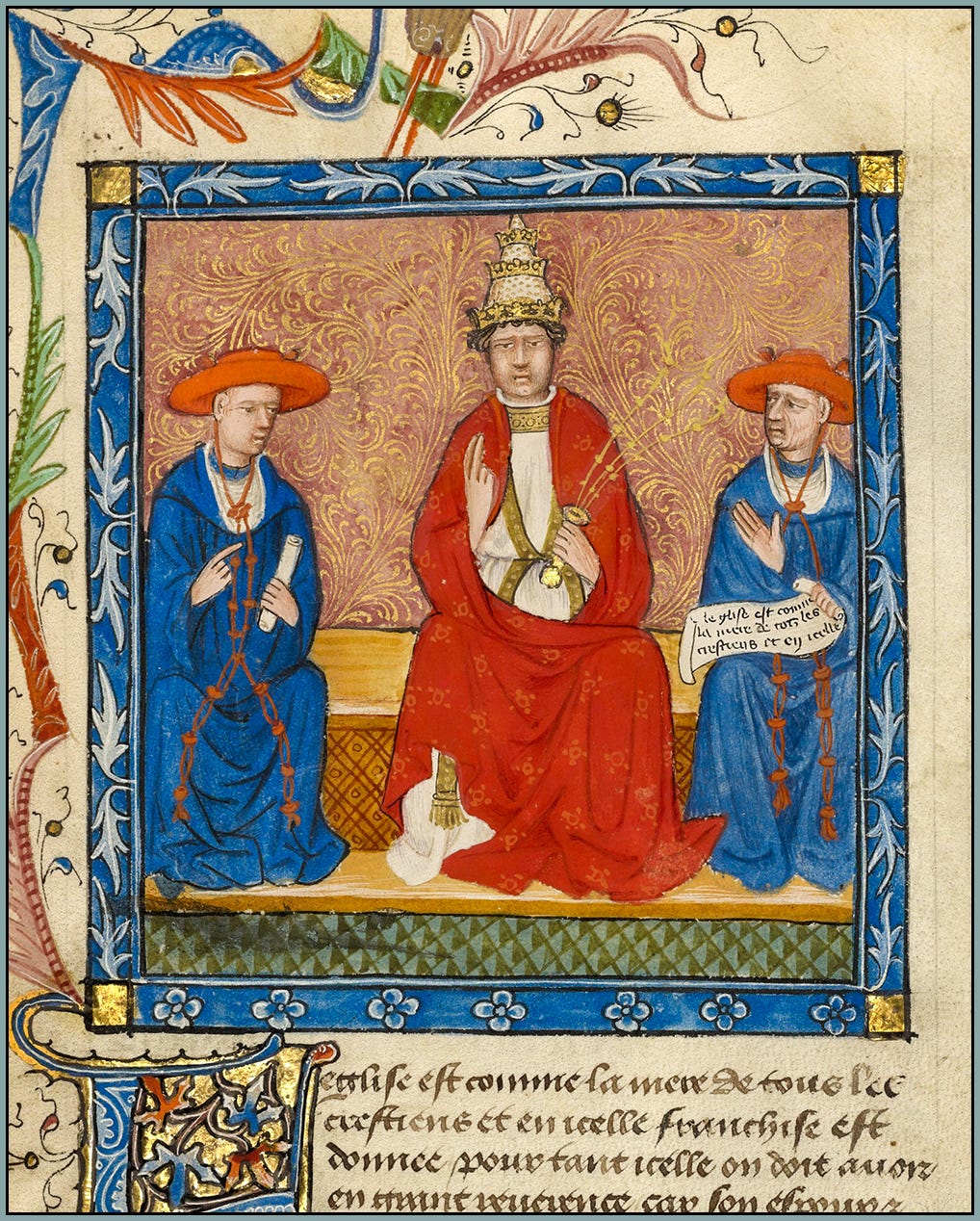Did the First Pope Leo Really Save Rome from the Barbarians?
A crucial lesson to be learned from the full story of Leo the Great’s legacy
How anyone can be prevailed upon to become a world leader, I will never understand.
I saw something on the news about an Englishman (Starmer), a Frenchman (Macron), and a German (Merz) having a grand old time on a train en route to Kyiv. (The trains carrying not-yet-dead-or-maimed young men to the killing fields in Ukraine are reportedly less festive.) Some (supposedly) strange behavior and (apparently) suspicious objects were caught on camera, and now the rumor mill is buzzing: perhaps it wasn’t just the perfumed air on the Kyiv Express that the European dignitaries were inhaling?
I have not the slightest idea if these men picked up a cocaine habit at some point during their time as public servants. My reaction is simply this: how utterly miserable to be a secular head of state in the age of social media, imperial bureaucracy, and unreal-politik. If these people need cocaine to have a good time, or to temporarily dull the edge of their unquiet consciences, I sincerely pity them. And if the tissue was indeed just a tissue (as the Elysée insists), and the coffee stirrer was indeed just a coffee stirrer (a plausible hypothesis), I still pity them—because it would be exceedingly unpleasant to see one’s ordinary professional activities mutate, through the work of a mediasphere infected by yet another “viral” video, into a worldwide scandal involving repugnant and humiliating behavior.
If I were to offer this modern triumvirate a bit of consolation, I might mention that at least the woes of high office have a long pedigree in European history. Consider, for example, the Roman general Flavius Aetius. I didn’t mention his name in Sunday’s post, but he was the one who defeated Attila the Hun when the latter invaded Gaul in 451. Military victories are always appreciated, but victorious generals—not so much, insofar as they have a tendency to accumulate political power. The western Emperor at this time, Valentinian III, eventually perceived Aetius as a dangerous rival. His solution was to accuse the war hero of treason and then summarily murder him.
Valentinian now felt a little safer on his throne, but the plan went awry six months later, when two of Aetius’ bodyguards decided to settle the score. One moment the most powerful man in western Europe, the next moment, dead—such was the end of Emperor Valentinian. The next unlucky head to wear the imperial crown was a patrician named Petronius Maximus. He had encouraged Valentinian to eliminate Aetius, so he probably had plenty of enemies, and perhaps he knew his days were numbered. The number, in fact, was seventy-six, for on his seventy-seventh day as Emperor, the Romans nabbed him as he was trying to flee the city, tore him to pieces, and threw his dismembered corpse into the Tiber.
The Huns were no longer a threat, but there were other barbarians in Europe. While the secular authorities were busy killing and being killed, the Vandals had their eye on the Eternal City, and in 455, their leader, Gaiseric, was at the gates of Rome.
Once again, western civilization could see the Grim Reaper in the distance; once again, a barbarian king was preparing to vanquish Rome; once again, the man who went out to meet him was an unarmed priest named Lion.
Keep reading with a 7-day free trial
Subscribe to Via Mediaevalis to keep reading this post and get 7 days of free access to the full post archives.





